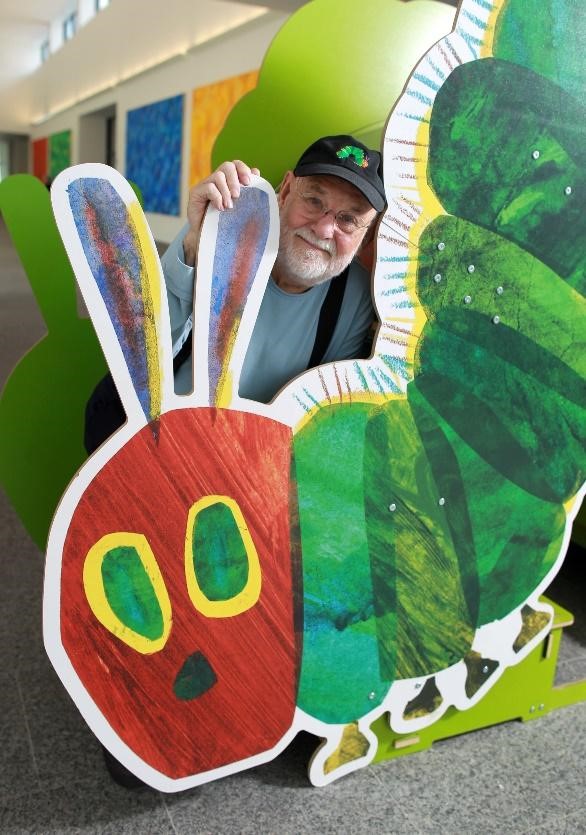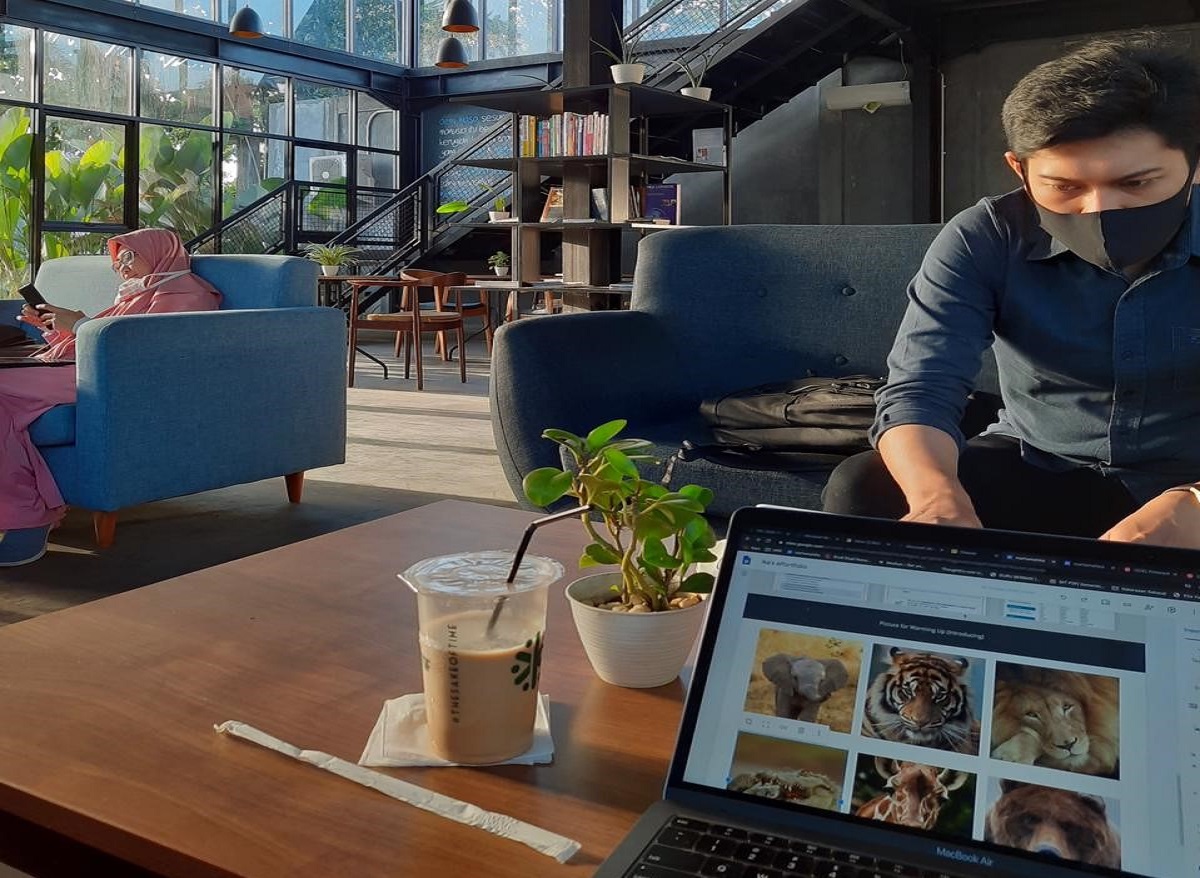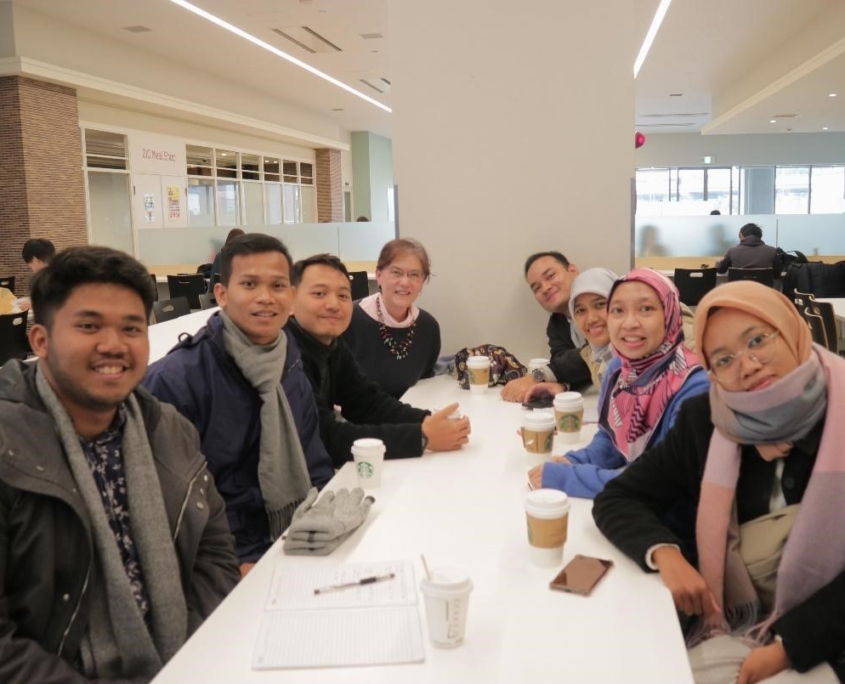Written by Lu’luatul Awaliyah
Edited by Fatwa Hapsari Alwihani
It’s been a hard year, dealing with the corona virus that has been prescribed upon us. It requires us to keep our distance in all matters, including learning. A full year we do distance learning, it is not uncommon for us to feel bored, right?
Moreover, we still have to do distance learning this semester, therefore it is important for us to build a good mood to support learning so that we can get proper knowledge. McMillan (2013) revealed that mood is the key that determines the acquisition of learning experiences. Thus, if we have a good mood, then we will have a good learning experience too.
Therefore, in this article I will share some ways on how to maintain a good mood in order to support distance learning.
1. Take Your Time
If anything, what we have now is time. Breath and Relax. Now is the time to seek and figure out who we are and what we want. It is very important during this pandemic to use the best possible time, between study time, time at home, and refreshing time. In this case, we can manage our time by making a daily plan in the form of a schedule, so that what we do is in accordance with what portion we want to achieve on that day and so that it doesn’t widen everywhere. Furthermore, there are two ways to make better use of our time;
Current situation demands us not to involve in some kind of direct competition, organization, or internship. However, we can try online certification as an alternative. In this pandemic covid 19 eras, there are many institutions held online short courses or webinars. In particular, we can take the TOEFL or IELTS preparation course to improve our English skills and abilities. Thus, when pandemics end, we can take the test immediately.
Do small things that help people. We can work collaboratively with some communities and policy makers to help the others around us. We can create an initiative movement to assist children’s learning during the pandemic era.
2. Do What Make You Happy
The second way to stay in our good mood is to do things that make us happy. Everyone has their own way of being happy, so it depends on each of us. For me, there is an easy way to make me happy. That is doing my routine as in a normal life before pandemic. You can try these cycles;
-
- In the morning, we wake up and do sports, cycle, and do things like normal times, because indirectly it will provide a good stimulus to us.
- then, do the daily work that you have designed previously.
- When we start getting tired, we can take a break, we can listen to music to relax our minds. In this case, Innes (2016) found that music-listening could boost mood and well-being. Anyway, please listen to music in English, so that even though we are resting, our brain can still learn to process the context and storyline of the music, learn English (of course), and we can learn critical thinking skills.
Tips: if you are confused about the type of work that gives you happiness, think about the kind of life that you want to lead, and let the vision lead the way.
3. Don’t Try to Do It All at Once
Do not try to do it all at once. Trying to do everything all at once can be counter-productive. Start with one thing each day: one thing that is most important, the one thing that would either make everything else easier. in the task alternating, we do get a lot of things done: but not trying to do them all at once, instead by choosing to work in phase, focusing on different things at different times.
If you have some schoolwork or homework, don’t procrastinate, set the schedule right away, and do it little by little, don’t pile up assignments and finish them all at once in one day. It can make you quickly bored and tired.
I realized that the key to achieving things is to prioritize and minimize the distraction that may get in the way of achieving the single most important thing we choose to do.
As also expressed by some lecturers at Ohio State University that they prioritize students’ mental health, student learning mood, happiness, and most importantly students can understand the material without burdening them.
4. Don’t Take It Personally
We are surrounded by family and friends. Do not do all the stuff alone. Never hesitate to ask for help. If boredom attacks us, we can have such a small talk with family. It may seem just a simple thing but it means a lot for some people to strengthen their family bonds. Moreover, most of us are physically separated with friends, we also can make a video call with them, wish them good health, and ask their opinion about something that pops up in our head. Try to communicate what we need; thus, they will understand and help us.
As a student, the most important thing in this pandemic era is how to maintain our good mood during learning activities. A good mood produces a comfortable feeling and it makes us easier to gain new knowledge. Good luck and hopefully it will be useful.
References:
Ayunda, M. (2018). Dear Tomorrow: Notes to My Future Self. Yogyakarta: Bentang Pustaka.
Bower, H, G., Monteiro, K, P., & Gilligan, S, G. (1978). Emotional Mood as a Context for Learning and Recall. Journal of Verbal Learning and Verbal Behavior Stanford University.
Burns, D, D. (2004). Feeling Good: The New Mood Therapy. Los Angeles: HarperCollins Publisher.
Chen, L., Zhou, S., & Bryant, J. (2007). Temporal Changes in Mood Repair Through Music Consumption: Effects of Mood, Mood Salience, and Individual Differences. Media Psychology. DOI: 10.1080/15213260701283293.
Goldingay, S., & Land, C. (2014). Emotion: The ‘e’ in engagement in online distance education in social work. Journal of Open, Flexible and Distance Learning, 18(1), [58–72].
Heid, Markham. (APRIL 26, 2018 10:12 AM EDT). You Asked: Is Listening to Music Good For Your Health?. TIME. Retrived on 28 Agustus 2020, 06:00 AM, from Time.com.
McMillan, W. (2013). Transition to university: The role played by emotion. European Journal of Dental Education 17, 169–176. Doi: 10.0000/eje.12026.
Reinecke, L. (2017). Mood Management Theory. John Wiley & Sons, Inc. DOI: 10.1002/9781118783764.wbieme0085.


























